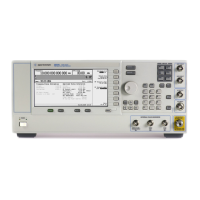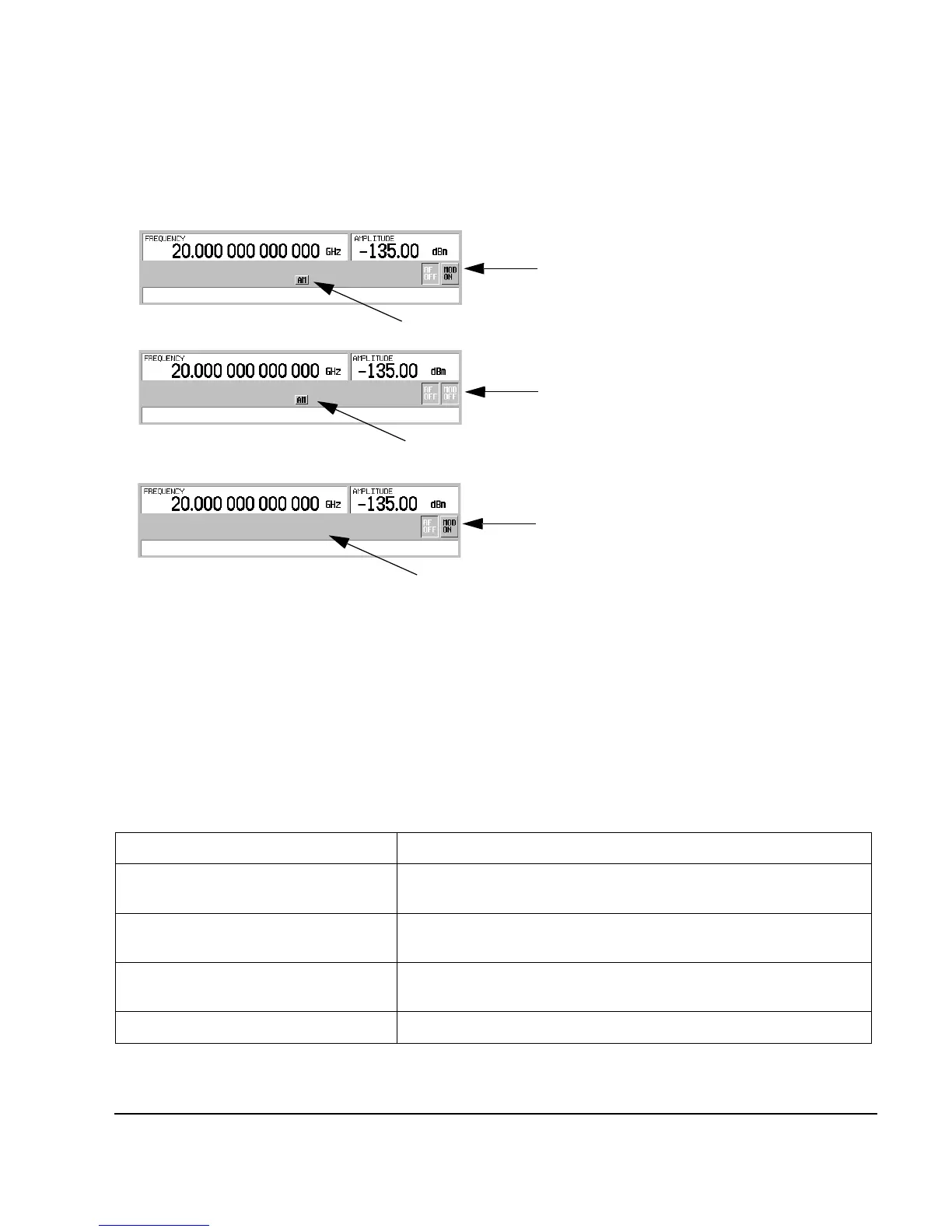Chapter 2 61
Basic Operation
Using Data Storage Functions
Figure 2-11 Carrier Signal Modulation Status
Using Data Storage Functions
This section explains how to use the two forms of signal generator data storage: the memory catalog
and the instrument state register.
Using the Memory Catalog
The Memory Catalog is the signal generator’s interface for viewing, storing, and saving files; it can be
accessed through the signal generator’s front panel or a remote controller. (For information on
performing these tasks remotely, see the Agilent Signal Generators Programming Guide.)
Table 2-1 Memory Catalog File Types and Associated Data
Binary binary data
State instrument state data (controlling instrument operating parameters,
such as frequency, amplitude, and mode)
LIST sweep data from the List Mode Values table including frequency,
amplitude, and dwell time
User Flatness user flatness calibration correction pair data (user–defined
frequency and corresponding amplitude correction values)
FIR Finite Impulse Response (FIR) filter coefficients
Mod Set to On—Carrier is Modulated
AM Modulation Format is Active
AM Modulation Format is Active
Mod Set to Off—Carrier is
not Modulated
Mod Set to On—Carrier is
not Modulated
No Active Modulation Format

